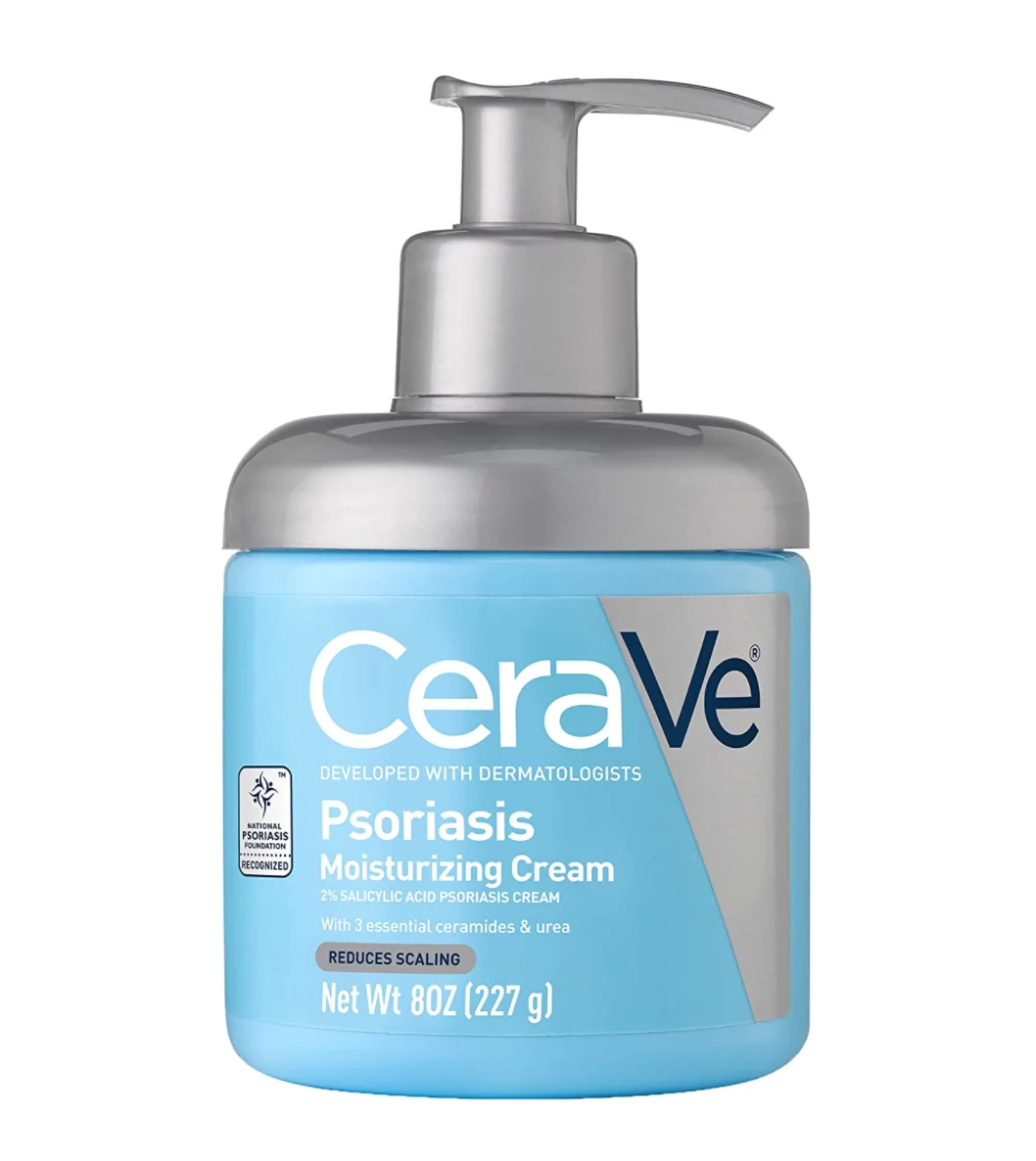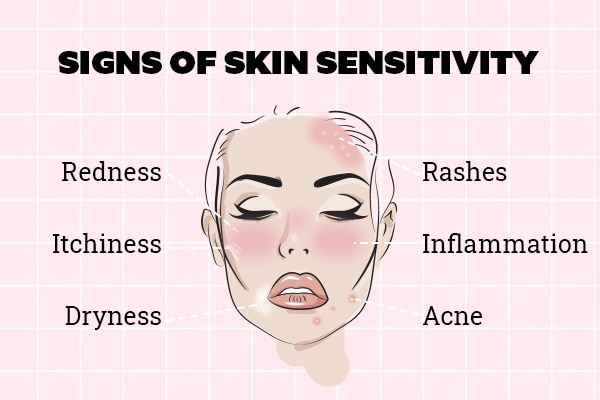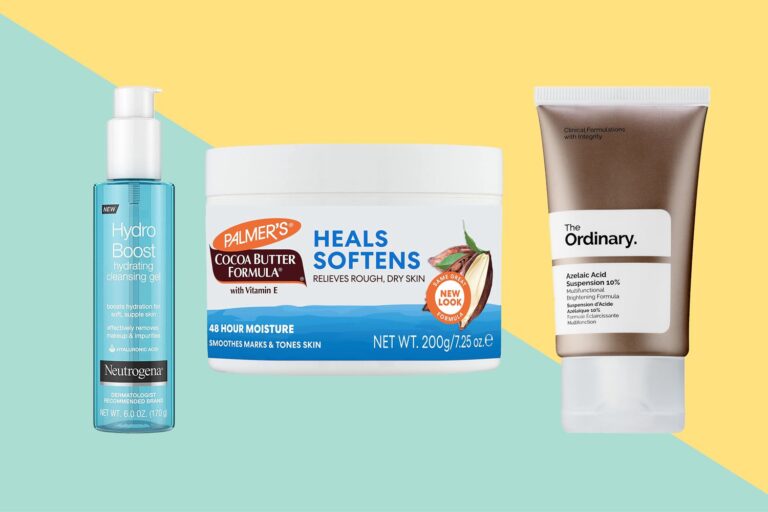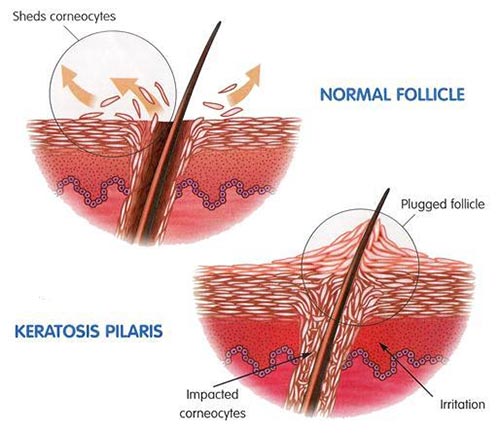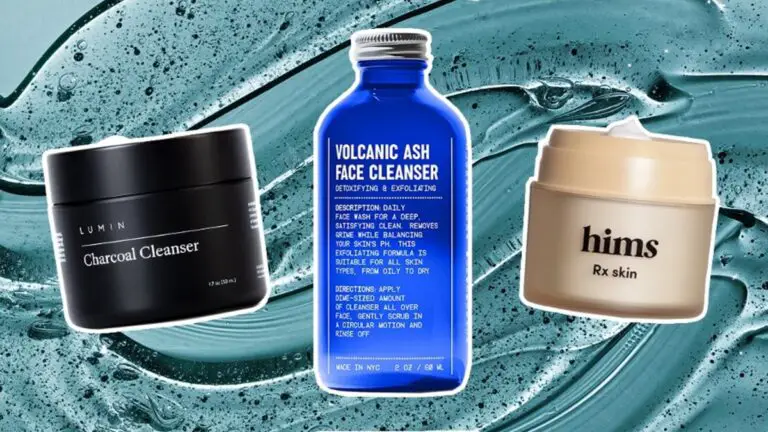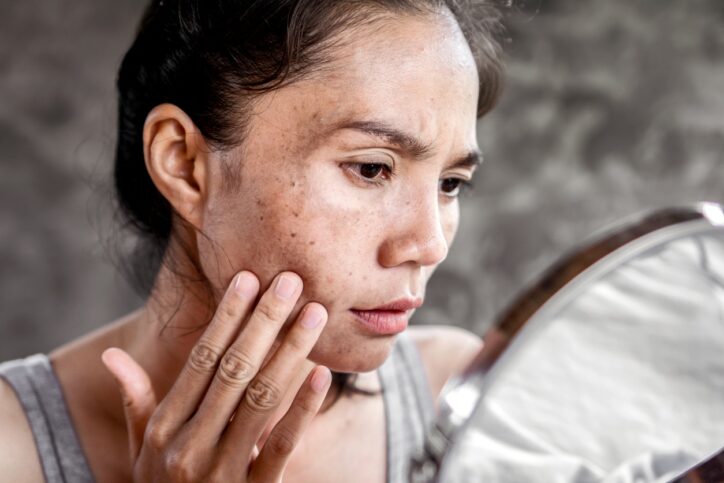The Best Skin Care Products for Psoriasis
Welcome to Premier Health Rx, your trusted source for health and wellness information. In this article, we’ll delve into the world of psoriasis, a chronic skin condition that affects millions of people worldwide. Psoriasis can be challenging to manage, but with the right skin care products, you can find relief and improve your skin’s health.
Psoriasis is more than just a cosmetic concern; it can impact your quality of life. Whether you’re newly diagnosed or have been dealing with psoriasis for years, our guide will help you explore some of the best skin care products available to manage this condition effectively.
Read on to discover the products and treatments that can provide relief from psoriasis symptoms and help you achieve healthier, clearer skin.
Understanding Psoriasis
Psoriasis is a chronic skin condition that affects millions of people worldwide. It is characterized by the rapid buildup of skin cells, leading to the formation of thick, red, and often itchy patches on the skin’s surface. These patches can occur anywhere on the body but are most commonly found on the elbows, knees, scalp, and lower back.
Psoriasis is an autoimmune disorder, which means that the body’s immune system mistakenly attacks healthy skin cells. This immune response triggers the accelerated production of skin cells, resulting in the characteristic symptoms of psoriasis.
Types of Psoriasis
There are several different types of psoriasis, each with its own distinct characteristics:
- Plaque Psoriasis: This is the most common form, characterized by raised, red patches covered with silvery scales.
- Guttate Psoriasis: Typically appears as small, red spots and is often triggered by a bacterial or viral infection.
- Inverse Psoriasis: Affects skin folds and appears as smooth, red lesions.
- Pustular Psoriasis: Characterized by pus-filled blisters and can be quite painful.
- Erythrodermic Psoriasis: Rare but severe, causing widespread redness and scaling of the skin.
Causes of Psoriasis
The exact cause of psoriasis is still not fully understood, but it is believed to be a combination of genetic and environmental factors. Some common triggers for psoriasis flare-ups include:
- Stress
- Infections
- Certain medications
- Injuries to the skin
- Cold, dry weather
Psoriasis Management
While there is no cure for psoriasis, various treatment options are available to manage and alleviate its symptoms. These treatments include:
| Treatment | Description |
|---|---|
| Topical Treatments | Applied directly to the skin and include corticosteroids, vitamin D analogs, and coal tar preparations. |
| Phototherapy | Exposure to ultraviolet (UV) light to slow the growth of skin cells. |
| Oral Medications | Prescription drugs that work throughout the body to control psoriasis. |
| Biologics | Injectable drugs that target specific immune system responses. |
Understanding the type and severity of your psoriasis is crucial for effective management. It’s essential to work closely with a dermatologist to develop a personalized treatment plan tailored to your needs.
Psoriasis can be a challenging condition, but with the right knowledge and treatment, individuals can achieve better skin health and an improved quality of life.
1. Moisturizers and Emollients
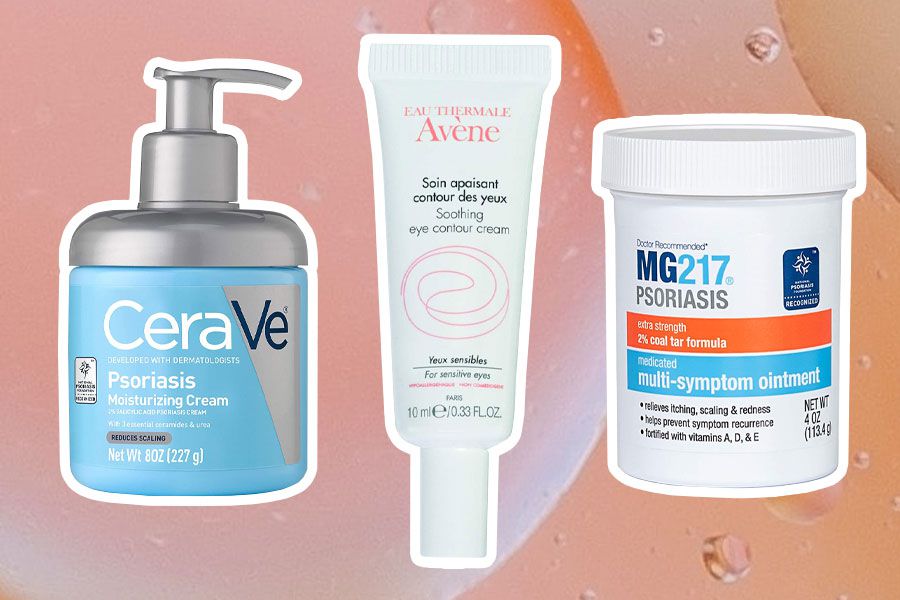
Moisturizers and emollients are essential components of a comprehensive psoriasis skin care routine. While they may not directly treat the underlying causes of psoriasis, they play a crucial role in managing the condition by relieving dryness, itching, and discomfort associated with psoriatic skin.
How Do They Work?
Moisturizers and emollients work by locking in moisture and creating a protective barrier on the skin’s surface. This barrier helps to:
- Hydrate the Skin: Psoriasis often leads to dry and flaky skin. Moisturizers provide much-needed hydration, reducing the dryness and minimizing the appearance of scaling.
- Relieve Itching: Itchy skin is a common symptom of psoriasis. Emollients soothe the skin and alleviate itching, providing immediate relief.
- Prevent Flare-Ups: Regular use of moisturizers can help prevent psoriasis flare-ups by maintaining skin moisture and reducing the risk of skin injuries that can trigger symptoms.
Choosing the Right Moisturizer
Not all moisturizers are created equal, and it’s important to select the right product for your skin type and psoriasis severity. Here are some tips for choosing an effective moisturizer:
- Look for Thick, Ointment-Based Products: Creams and ointments are generally more effective than lotions for psoriasis-prone skin, as they provide better hydration.
- Avoid Fragrances and Irritants: Fragrance-free and hypoallergenic options are less likely to irritate sensitive skin.
- Consider Ingredients: Some moisturizers contain added ingredients like ceramides, which can help repair the skin’s natural barrier.
Application Tips
Proper application of moisturizers is essential for optimal results:
- Apply After Bathing: Apply moisturizer immediately after a bath or shower when your skin is still slightly damp. This helps lock in moisture.
- Use Generously: Don’t skimp on moisturizer. Apply it generously to affected areas and the surrounding skin.
- Reapply as Needed: Depending on the severity of your psoriasis, you may need to reapply moisturizer throughout the day to keep your skin hydrated.
Conclusion
Moisturizers and emollients are fundamental tools in the management of psoriasis. They may not cure the condition, but they provide much-needed relief from the discomfort and appearance of psoriatic skin. When used in conjunction with other treatments, such as topical medications or phototherapy, moisturizers can significantly improve your skin’s health and your overall quality of life.
2. Topical Steroids
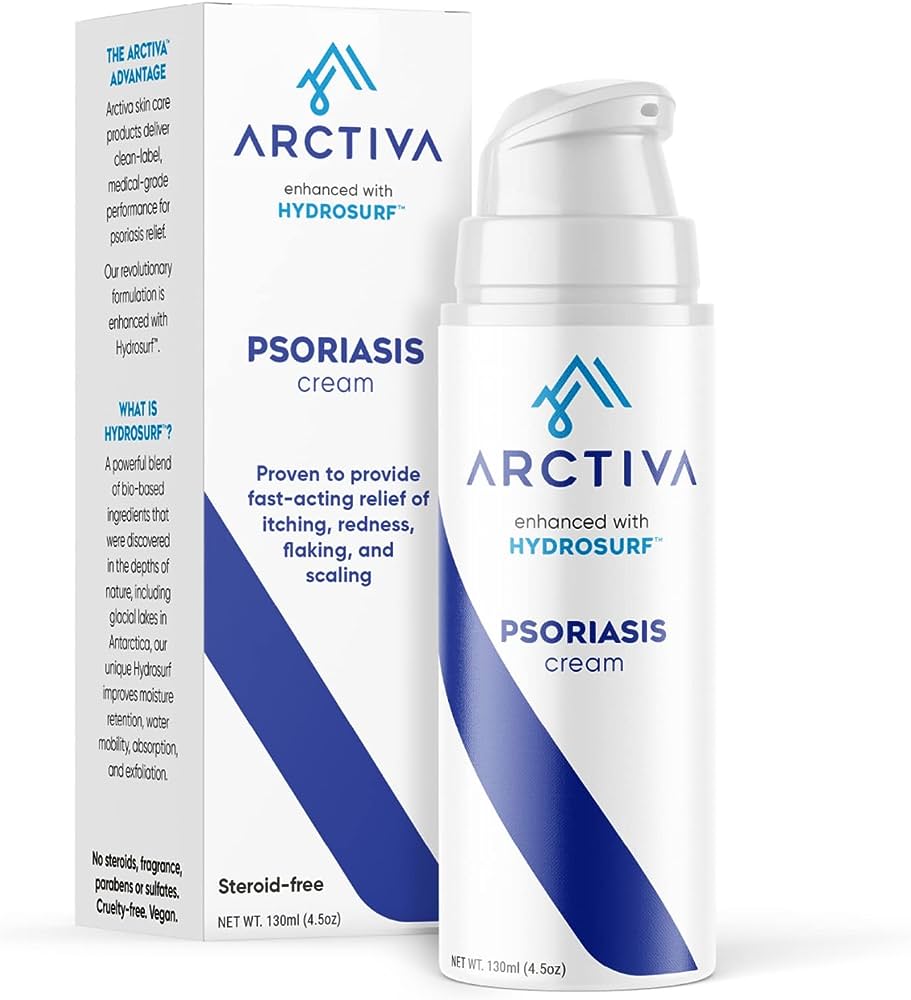
Topical steroids are a commonly prescribed treatment for psoriasis, especially for mild to moderate cases. These medications contain corticosteroids, which are anti-inflammatory agents that can help reduce the redness, swelling, and itching associated with psoriatic lesions.
How Do They Work?
Topical steroids work by suppressing the inflammatory response in the skin. When applied to psoriasis-affected areas, they help to:
- Reduce Inflammation: Corticosteroids calm the overactive immune response in the skin, which is a hallmark of psoriasis.
- Relieve Itching: Itching is a common and distressing symptom of psoriasis. Topical steroids can provide quick relief from itching.
- Slow Skin Cell Growth: These medications can help slow down the abnormal growth of skin cells, reducing the thickness and appearance of plaques.
Types of Topical Steroids
There are different strengths of topical steroids available, ranging from mild to potent. The choice of strength depends on the severity and location of your psoriasis. Mild steroids are typically used on the face and other sensitive areas, while more potent ones are reserved for tougher-to-treat plaques.
Here’s a general breakdown of topical steroid strengths:
| Steroid Strength | Examples |
|---|---|
| Mild | Hydrocortisone, desonide |
| Moderate | Triamcinolone, fluocinonide |
| Potent | Betamethasone, clobetasol |
Application Tips
Proper application of topical steroids is essential for their effectiveness and safety:
- Follow Your Doctor’s Instructions: Use the medication exactly as prescribed by your dermatologist. Avoid overusing or underusing it.
- Apply Sparingly: Use a thin layer of the cream or ointment on the affected areas. Rub it in gently until it disappears into the skin.
- Avoid Prolonged Use: Long-term use of potent steroids can lead to skin thinning and other side effects. Use them only as directed by your doctor.
Conclusion
Topical steroids are valuable tools in managing psoriasis, offering relief from symptoms and improving the appearance of psoriatic plaques. However, they should be used under the guidance of a healthcare professional, as misuse or overuse can lead to adverse effects. When used correctly, topical steroids can be a beneficial part of your psoriasis treatment plan.
3. Coal Tar Products
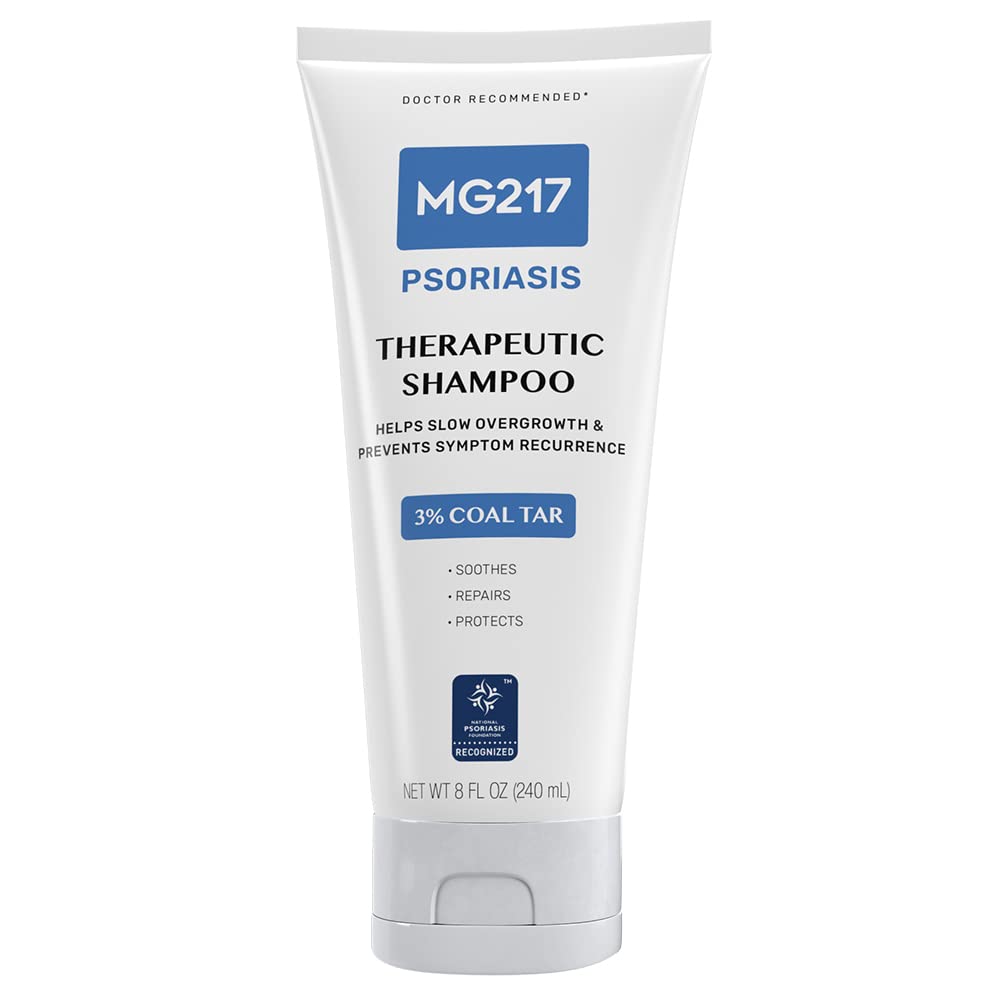
Coal tar has been used for decades to effectively manage the symptoms of psoriasis. Coal tar products, derived from coal, are known for their ability to reduce the scaling, itching, and inflammation associated with psoriatic plaques.
How Do They Work?
Coal tar products work by slowing down the excessive growth of skin cells and reducing inflammation in the skin. They can help with psoriasis in the following ways:
- Slowing Skin Cell Growth: Coal tar products can help normalize the rapid skin cell turnover seen in psoriasis, reducing the thickening and scaling of plaques.
- Anti-Inflammatory Effects: These products have mild anti-inflammatory properties that can soothe redness and itching associated with psoriasis.
- Moisturizing the Skin: Coal tar can lock in moisture, helping to combat the dryness common in psoriatic skin.
Types of Coal Tar Products
Coal tar products are available in various forms, including:
- Shampoos: Designed for scalp psoriasis, coal tar shampoos can help reduce itching and flaking of the scalp.
- Creams and Ointments: These are applied directly to the skin and are suitable for treating psoriasis on the body or smaller areas.
- Bath Solutions: Coal tar bath solutions are added to bathwater to treat widespread psoriasis.
- Scalp Solutions: These are specifically formulated for psoriasis on the scalp and can be applied directly to affected areas.
Using Coal Tar Products Safely
While coal tar products can be effective, it’s important to use them safely:
- Follow Instructions: Always follow the product’s instructions and your healthcare provider’s guidance for application and frequency.
- Protect Clothing and Bedding: Coal tar can stain clothing and bedding, so take precautions to avoid contact with fabrics.
- Limit Sun Exposure: Coal tar can make your skin more sensitive to sunlight, so protect treated areas from excessive sun exposure.
Conclusion
Coal tar products have been trusted remedies for psoriasis for many years. While they may not be the first choice for everyone, they offer a safe and cost-effective option for managing psoriasis symptoms. As with any psoriasis treatment, it’s crucial to work with your healthcare provider to determine the most suitable approach for your specific condition.
4. Salicylic Acid Products
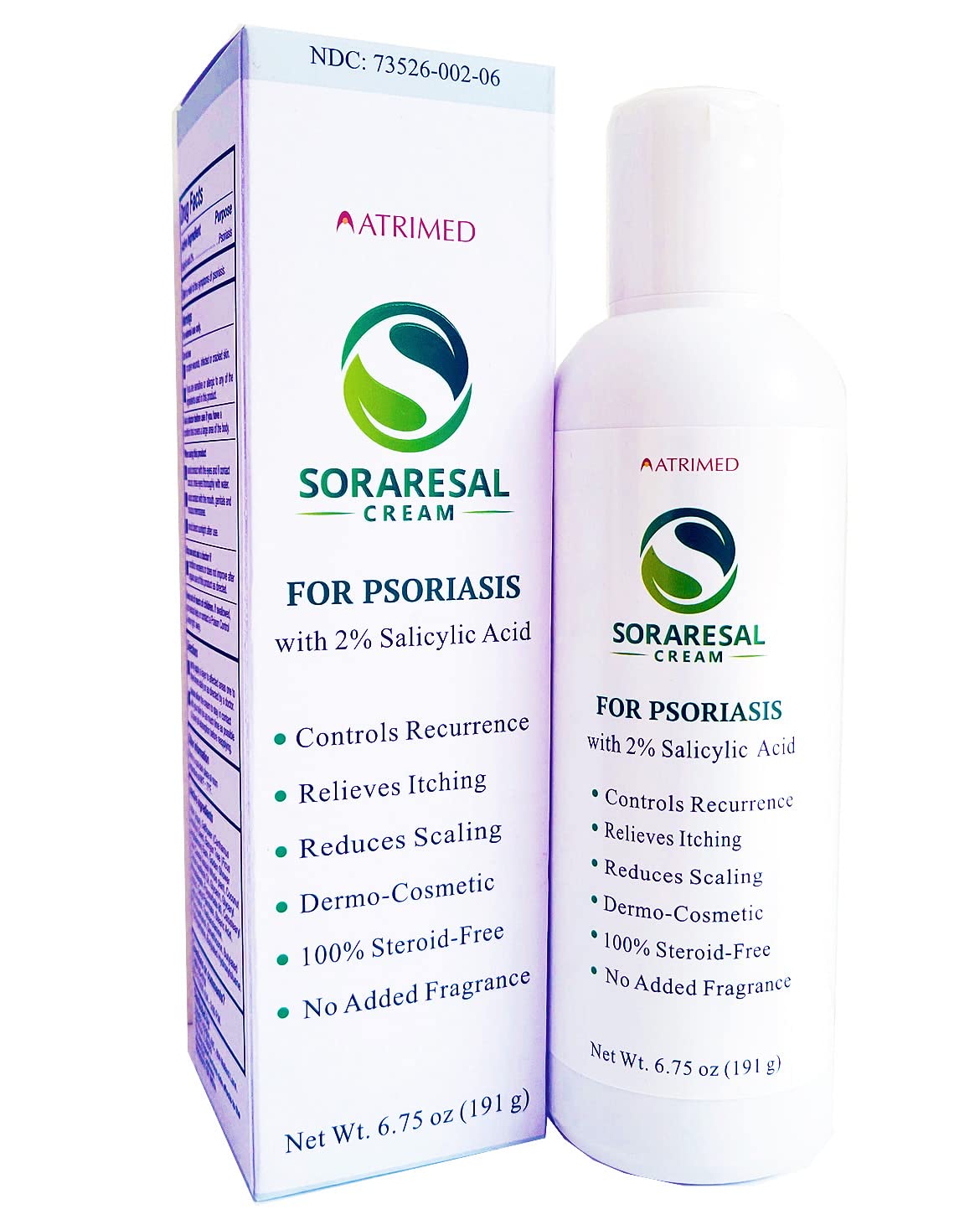
Salicylic acid is a well-known and widely used treatment for psoriasis. It is an effective keratolytic agent, which means it helps to soften and exfoliate the thick, scaly plaques that are characteristic of psoriatic skin.
How Does It Work?
Salicylic acid works by breaking down the bonds between skin cells, making it easier to remove the scales. It also has anti-inflammatory properties that can help reduce redness and itching associated with psoriasis. Here’s how salicylic acid products can benefit individuals with psoriasis:
- Exfoliation: Salicylic acid helps to gently remove the thick layers of dead skin cells, reducing the appearance of plaques.
- Scale Softening: It softens scales, making them easier to lift and remove, which can be especially beneficial for scalp psoriasis.
- Itch Relief: The anti-inflammatory properties of salicylic acid can alleviate itching and discomfort.
Types of Salicylic Acid Products
Salicylic acid is available in various formulations suitable for different parts of the body:
- Creams and Lotions: These are commonly used for psoriasis on the body.
- Shampoos: Salicylic acid shampoos are designed for scalp psoriasis.
- Topical Gels: These can be applied to specific psoriasis plaques on the body.
Using Salicylic Acid Products Safely
Salicylic acid products can be highly effective, but they should be used with care:
- Follow Instructions: Always follow the product’s instructions for application, frequency, and duration.
- Avoid Healthy Skin: Apply salicylic acid products only to the affected areas of psoriasis, as it can irritate healthy skin.
- Moisturize: After using salicylic acid, apply a moisturizer to keep the skin hydrated, as it can be drying.
Conclusion
Salicylic acid products are valuable tools in the management of psoriasis, especially for those dealing with scaling and thickened skin. They offer a non-invasive approach to reducing plaque buildup and can provide relief from itching and discomfort. As with any psoriasis treatment, it’s important to consult with a healthcare provider to determine the most suitable options for your specific condition.
5. Prescription Medications

For individuals with moderate to severe psoriasis, prescription medications are often necessary to manage the condition effectively. These medications are typically recommended and supervised by a dermatologist or healthcare provider with expertise in psoriasis treatment.
Types of Prescription Medications
Prescription medications for psoriasis come in various forms, including:
- Topical Corticosteroids: More potent than over-the-counter varieties, these are prescribed for localized or stubborn psoriatic plaques.
- Topical Calcineurin Inhibitors: These non-steroidal creams and ointments can be used on sensitive areas like the face and groin.
- Systemic Medications: These medications work throughout the body and are typically prescribed for severe psoriasis. They include:
| Systemic Medication | Description |
|---|---|
| Methotrexate | An immunosuppressive drug that can slow down skin cell growth and reduce inflammation. |
| Cyclosporine | Suppresses the immune system to reduce psoriasis symptoms. It’s often used for short-term relief. |
| Biologics | These advanced drugs target specific parts of the immune system involved in psoriasis. They are administered by injection or infusion. |
| Oral Retinoids | Derived from vitamin A, these medications can slow down skin cell growth and reduce inflammation. |
Biologics deserve special mention. These cutting-edge medications have revolutionized psoriasis treatment. They include drugs like adalimumab, etanercept, and ustekinumab. Biologics are highly effective but are usually reserved for those who haven’t responded well to other treatments due to their cost and potential side effects.
Working with a Healthcare Provider
Prescription medications for psoriasis require careful monitoring and management by a healthcare provider. When considering these treatments, it’s essential to:
- Have Regular Check-ups: Your provider will monitor your progress and check for potential side effects.
- Discuss Risks and Benefits: Understand the potential side effects and benefits of each medication to make informed decisions.
- Follow the Treatment Plan: Adhere to the prescribed dosage and administration instructions for the best results.
Conclusion
Prescription medications are powerful tools in the management of psoriasis, offering significant relief for those with moderate to severe symptoms. However, their use should be guided by a healthcare provider with expertise in psoriasis treatment. The goal is to find the most effective and safe treatment plan tailored to your specific condition and needs.
6. Natural Remedies
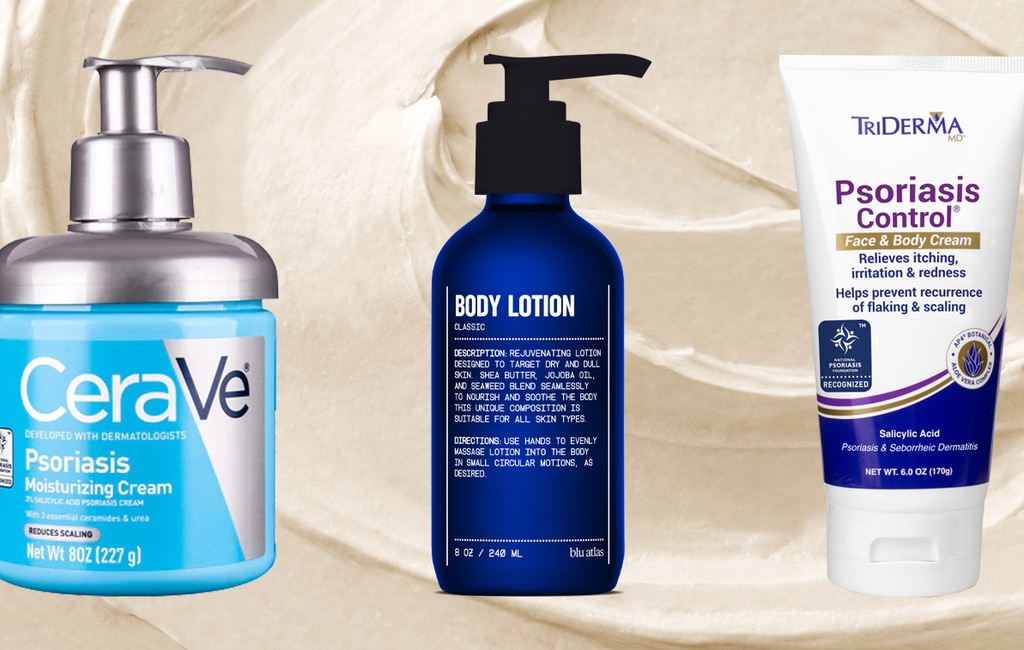
While prescription medications and medical treatments are often necessary for managing psoriasis effectively, some individuals seek natural remedies as complementary or alternative approaches to alleviate symptoms and improve their overall skin health.
Important Note: It’s crucial to consult with a healthcare provider before using natural remedies, especially if you are currently on other psoriasis treatments, as some natural remedies may interact with medications or exacerbate symptoms in certain cases.
1. Aloe Vera
Aloe vera is a natural plant-based remedy known for its soothing properties. Applying aloe vera gel directly to psoriasis plaques can help reduce redness, itching, and inflammation. Look for 100% pure aloe vera gel or use the gel directly from the plant’s leaves.
2. Epsom Salt Baths
Epsom salt baths can provide relief by soothing irritated skin and reducing inflammation. Add Epsom salt to a warm bath and soak for about 15-20 minutes. Be sure to moisturize your skin after the bath to prevent dryness.
3. Apple Cider Vinegar
Apple cider vinegar has natural anti-inflammatory properties and can be diluted with water and applied to psoriasis plaques as a compress. However, it’s essential to dilute it well to avoid skin irritation.
4. Turmeric
Turmeric contains curcumin, which has anti-inflammatory properties. You can add turmeric to your diet or apply a paste made from turmeric and water directly to affected areas for relief.
5. Dead Sea Salt
Soaking in a bath with Dead Sea salt, rich in minerals like magnesium and bromide, can help reduce scaling and soothe psoriasis symptoms. Ensure the water is warm, not hot, to prevent further skin irritation.
6. Dietary Changes
Some individuals have found relief from psoriasis symptoms by making dietary changes. Consider adding more anti-inflammatory foods like fatty fish, fruits, and vegetables to your diet while limiting processed foods, red meat, and dairy products. Staying hydrated is also essential for overall skin health.
7. Stress Reduction
Stress can trigger or exacerbate psoriasis symptoms. Engaging in stress-reducing activities such as yoga, meditation, or deep breathing exercises can be beneficial. Adequate sleep and regular exercise are also essential for managing stress and improving overall well-being.
Conclusion
Natural remedies can be a valuable addition to your psoriasis management plan, but they should not replace medical treatment prescribed by your healthcare provider. It’s essential to consult with a healthcare professional before incorporating natural remedies into your routine to ensure they are safe and suitable for your specific condition. By combining natural remedies with medical treatments and a healthy lifestyle, you can work towards managing psoriasis effectively and improving your skin’s health.
Frequently Asked Questions (FAQ)
1. What is psoriasis?
Psoriasis is a chronic autoimmune skin condition characterized by the rapid buildup of skin cells, leading to the formation of red, thick, and often itchy patches on the skin’s surface.
2. Is psoriasis contagious?
No, psoriasis is not contagious. It is an autoimmune condition and cannot be spread through physical contact or by sharing personal items.
3. What are the common triggers for psoriasis flare-ups?
Common triggers include stress, infections (such as strep throat), certain medications, skin injuries, cold and dry weather, smoking, and excessive alcohol consumption.
4. Are there different types of psoriasis?
Yes, there are several types of psoriasis, including plaque psoriasis, guttate psoriasis, inverse psoriasis, pustular psoriasis, and erythrodermic psoriasis. Each type has distinct characteristics.
5. How can I manage itching and discomfort caused by psoriasis?
Using moisturizers, topical steroids, and salicylic acid products can help relieve itching and discomfort. Consult your dermatologist for specific recommendations.
6. Are there natural remedies for psoriasis?
Yes, some natural remedies like aloe vera, Epsom salt baths, apple cider vinegar, and dietary changes may provide relief. However, consult with a healthcare provider before trying any natural remedies.
7. Can I use natural remedies alongside prescription medications?
It’s essential to consult with your healthcare provider before combining natural remedies with prescription medications to ensure there are no adverse interactions.
8. What are biologics, and how do they work in treating psoriasis?
Biologics are advanced medications that target specific parts of the immune system involved in psoriasis. They are usually administered by injection or infusion and can provide significant relief for moderate to severe psoriasis.
9. How can I reduce the risk of psoriasis flare-ups?
To reduce the risk of flare-ups, it’s essential to manage stress, avoid triggers, follow your prescribed treatment plan, maintain good skin hygiene, and lead a healthy lifestyle with a balanced diet and regular exercise.
10. Is there a cure for psoriasis?
Currently, there is no known cure for psoriasis. However, various treatments, both medical and natural, can effectively manage symptoms and improve the quality of life for individuals with psoriasis.
Conclusion
Psoriasis is a challenging skin condition that can significantly impact your quality of life. However, with the right approach to skin care and treatment, you can effectively manage its symptoms and improve your skin’s health.
We’ve explored various skin care products and treatment options that can make a difference in your psoriasis journey:
- Moisturizers and Emollients: These products provide hydration and relief from dryness and itching, making them essential for daily care.
- Topical Steroids: Potent and effective, these can reduce inflammation and alleviate the discomfort associated with psoriatic plaques.
- Coal Tar Products: Time-tested remedies that can help normalize skin cell growth and soothe irritated skin.
- Salicylic Acid Products: These products aid in exfoliating and softening thick, scaly plaques.
- Prescription Medications: For more severe cases, prescription treatments like biologics offer advanced solutions under medical supervision.
- Natural Remedies: Complementary approaches like aloe vera, Epsom salt baths, and dietary changes can provide relief and support overall skin health.
Remember that psoriasis management often requires a combination of treatments tailored to your specific condition. It’s crucial to work closely with a healthcare provider, preferably a dermatologist, to develop a personalized treatment plan that suits your needs.
By following a comprehensive approach that includes medical treatments, appropriate skin care products, and a healthy lifestyle, you can minimize the impact of psoriasis, reduce flare-ups, and enjoy clearer, more comfortable skin. While psoriasis may not have a cure at this time, it is certainly manageable, and with the right strategies, you can lead a fulfilling life free from the constraints of this condition.
Thank you for joining us in exploring the best skin care products for psoriasis. We hope this information helps you on your journey to healthier and more comfortable skin.

